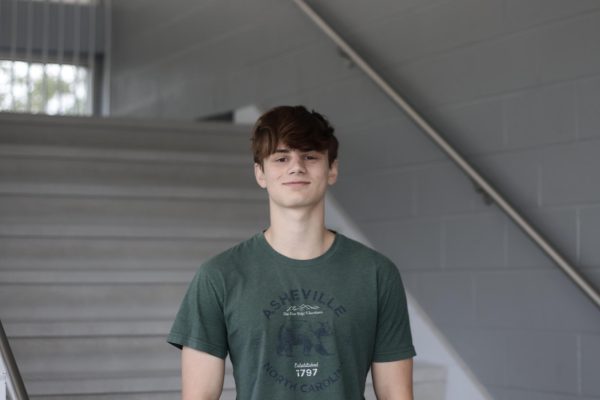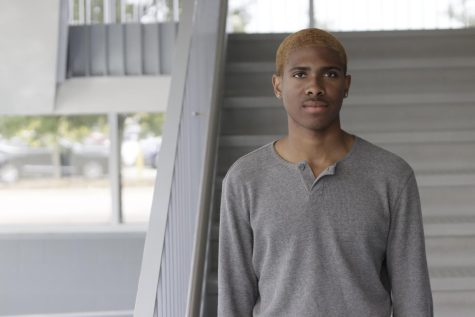
Drug usage among students has become more prevalent in schools throughout the past year. Nowadays, teens can be found with marijuana, nicotine, and other substances in the bathrooms, hallways, or even in the back of class. According to The National Drug Abuse Statistics, “21.3% of 8th graders have tried illicit drugs at least once. By the time they’re in 12th grade, 46.6% of teens have tried illicit drugs.”
After interviewing anonymous students who struggle with using substances at school, about 60% of the 10 interviewed students regret that they started using. However, 100% of the interviewed students said, if offered the opportunity, they would not get help.
This reasoning usually boils down to three main factors: students not wanting consequences, addiction to the substance, and/or fear of releasing accompanying information that goes along with their drug usage.
“A lot of times it is not only the fear of using but it is the fear of figuring out the circumstances around [the substance abuse],” Rosecrance’s school liaison representative Sandra Riley said.
A student may find it very difficult to quit these substances due to the repercussions from either their school or guardians. In addition, quitting these drugs can be even more stressful because high schools are heavy with the pressure of peers and the desire to fit in.
“I do hate that [getting help] comes about as part of a consequence at school because truly I am part of the cleanup. I am part of the resolution, not the consequence,” Riley.
All over the country marijuana, also known as weed, is one of the most used drugs by high schoolers. Common effects of marijuana are pleasant or relaxing feelings, as well as laughter and an increased appetite. As a result, students will typically pick this as their drug of choice to make school more “enjoyable.” For others, marijuana causes anxiety, fear, distrust, or panic, especially when too much THC, the main chemical in marijuana, is consumed.
“This is not the marijuana from back in the day,” Riley said. “Some of the amounts of THC are now between 98 and 100%. [In comparison] back in the 1980’s cocaine was changed to crack (more pure cocaine) and it was a much better high. It [is] a faster high and more addicting, this is what has happened to marijuana.”
Teens fall into the misconception of believing weed cannot be extremely addictive and will not harm their bodies. However, with THC now being almost 100% pure in marijuana nowadays, its effects are much stronger.
According to Riley, she has experience with kids forgetting where they were and having seizures due to their high intake of THC. In other cases, students have ended up in the emergency room with dilated pupils and increased blood pressure.
“The other thing [from too much THC] is not feeling like you are in your body (sometimes known as dissociation) and like your head is floating. It increases aggression, increases depression, and lowers motivation. It can also decrease your frustration tolerance,” Riley said.
There are a variety of reasons which prevent students from reaching out for help. However, there are students within the school community who are eager to quit this bad habit and focus on their future.
As stated before, Sandra Riley is Rosecrance’s direct access school liaison. Rosecrance is a mental health center located in Warrenville, Rockford, Crystal Lake, and other locations. Unknown to many, Rosecrance is connected with Metea and if a student is struggling with substance abuse or mental illness, contacting mental health coordinator Amanda Pyzik is a helpful resource as she can connect students to Rosecrance or other sources depending on their situation.
Unfortunately, Rosecrance is recommended to very few students under severe circumstances. For example, a student would get caught in the bathroom using some sort of drug, and then their “case” would be evaluated, if their case was bad enough they would be recommended to Pyzik and then connected with Riley/Rosecrance. Students should know about the Metea and Rosecrance connection so they can go get help under any circumstance.
After conversations with both Riley and Pyzik, this should no longer be a consequential place of recommendation. Getting help as students go on to graduate and start their careers is vital for future success. Everyone should know about how Pyzik and Rosecrance can help troubled teens get back on track.
“When we first get a call, what we do is a screening,” Riley said. “We ask some very pointed or specific questions and of course, make sure the student is not going to harm themself or anyone else. [Then] we take a look and get some idea on what that mental health or substance use is.”
The initial screening and conversation with Riley or Pyzik is 100% private and parents do not need to be involved. If you want to take it a step further or you need more help getting away from the substance, which could involve treatment, then parents would need to be included. The real consequence does not come from the school or guardians, it comes from graduating high school and still being addicted to these substances at such a young age. It sets you back from your career path and relationships.
“When I have kids come to me before they go to the school or before they go to their parents, I help kids tell their parents,” Riley said. “We do not necessarily go into specific drug use histories. I have always had a parent say they’ve suspected something was wrong and say they were glad to finally know.”
Certain students believe they are doing just fine and are functioning okay with using substances. However, if it does not affect teens in the present, it most definitely will in the near future.
“I did individual therapy, was an outpatient group leader, was an intensive outpatient program (IOP) leader, a residential counselor, and was a primary therapist. From my experience, it doesn’t matter why someone shows up [for help]. As long as they show up and keep showing up,” said Riley. “As a counselor, my goal is to interrupt that behavior, get somebody to challenge the way they think, and together identify change.”
With all this knowledge how do we find a solution? The solution lies within students reaching out to mental health coordinator Pyzik. She is located within the college and career center near the commons. The Metea community should push the connection with Rosecrance so students can get help. Students can also reach out to Rosecrance by themselves, as their mental health and substance abuse centers have a variety of ways to help each individual.






anonymous • Nov 17, 2023 at 7:54 pm
we should make it so if you use drugs but decide to get help you have the weakest punishment (obviously doesn’t apply to people who distribute them. doing drugs is bad enough but giving it to others is horrible.) if you see this pls don’t keep it a secret, look at how many people suffer from this